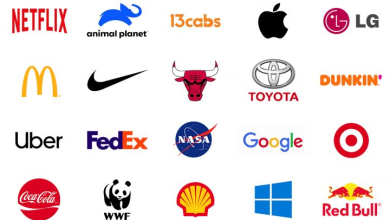5 Common Work from Home Scams
With the rise of the internet, many online workers are getting their jobs via websites like Craigslist, CareerBuilder, Indeed, Elance, and even Monster. These jobs range from work-at-home data entry clerks to graphic designers or writers. Work at home scams happens more often than common people think. Here is a list of common work from home scams you should be aware of to protect yourself.
The Check Scam
This common scam is simple but effective. You get an email asking for help with something (usually depositing checks for them or taking phone surveys). After doing what they asked you’re told that there was a glitch and that your check will be delayed – usually between 3-7 days. They give you details on how to cash the fake check when it comes in, then they ask you to send the money via Western Union or MoneyGram. Even if you’re lucky enough to get your hands on the cash before Western Union takes it back, once you’ve sent the money there is no way for you to get it back.
The Pirate Scam
This common scam targets freelancers with skills in graphic design, web development, writing/editing, etc. All emails usually start “We are a US-based company looking for someone with your specific skills…” They’ll probably have an impressive website and when they ask if they can hire you for something (usually at a very low rate), don’t be so quick to press that yes button The next email will include a “test project” and ask for your Paypal information. After you send it to them, they’ll ask for more projects and want to keep the payment. Don’t fall for this common scam!
The Check Overpayment Scam
This common scam is similar to the check scam (above), but instead of telling you that there was a glitch with your check, they will tell you that you’ve been overpaid and ask if you can deposit the extra money into another account for them. This common scam takes advantage of people’s naivety – some people may not know what Western Union or MoneyGram are, let alone how either works. They’ll even offer to give you a cut on the extra money as an incentive. No matter how much they promise you, don’t fall for it!
The Lottery Scam
This common scam targets people who are looking for work. You get an email saying that you’ve won the lottery or some sort of prize/recognition and all you have to do is pay a small fee (usually via Western Union or MoneyGram) to receive the goods (i.e., check). The second email will probably be something like “we need to verify your information” then ask for personal documents plus banking information. This is how they got their hands on my PayPal information… I should know because I’m one of those people who almost fell for this common scam. But before you think about doing anything, visit Snopes first.
The Mystery Shopper Scam
Companies ask people to work as mystery shoppers. The email will usually say that you’re working for an established company and they’ll give you a link to their website. They’ll ask you to shop at specific shops, then report your experience. Sometimes the companies are real but sometimes they aren’t – you won’t know until after getting scammed by them!
How to Protect Yourself?
With the rise of internet users, online scamming has been on the rise as well. With more and more people getting their jobs through various websites or networks, it is more common for these sites to be used as a medium for work-from-home scams. Even though there are many legitimate offers on these networks, there are more scams than ever before – especially aimed towards newbie freelancers looking for jobs. This often results in them losing their money or identity. Here are some tips to avoid falling into a work-from-home scam trap:
Be Careful with Your Online Security
Although this may sound obvious, it is important to have strong passwords and encryption for your devices. A secure network also offers protection against viruses or malware that can expose your personal information. Your computer can be used by others to access your account. To prevent this, make sure you always log out of the site when you are done working.
Be Wary of Jobs Offering Payment Through an Escrow Account
If a website states that they will keep payment in an escrow account until both parties are satisfied with the work, beware! That statement alone is enough to let you know that it is most likely a scam attempt looking for people who are new in the industry. Most companies do not use an escrow account when hiring freelancers. If this is the case, be sure to do your research before agreeing to any job offers like that.
Do Your Research Before Accepting a Job Offer
If someone from a company you have never heard of contacts you about a work-at-home position, beware! Search for reviews on them just as you would any other business. Although some companies from unknown countries may appear legitimate, it does not mean they are. Even if the company claims to be in another country but their website or application keeps redirecting you back to your own country’s website or app market, chances are they are a scam artist posing as a real business.
Be Wary of Companies Requiring Payment Through a Money Wire
The only instance where a company would require payment through a money wire is if they are paying you as an independent contractor. If they want to hire you as an employee, they should be more than happy to pay you through a more secure method such as direct deposit or check. If someone requests that you use a specific money wiring service, it is most likely a scam.
Beware of Jobs Requiring You to Pay for Training or Materials
Even if the job description says that you will get reimbursed for training or materials required for the job, doubt it! No legitimate business will ask their employees or freelancers to pay them for anything other than salary. They may request certain tools but never say that they will give you the tools. If they do, that is a red flag that you should run from!
The Bottom Line
Learning to spot common work-at-home scams can help you to avoid them and focus on finding legitimate opportunities for your home business. While many of these companies are overseas and provide contact information such as phone numbers and email addresses to be safe, it is important to verify those as well. Any company who claims they don’t have time or resources to check their email or doesn’t list a phone number won’t likely take the time to authenticate those details through another source which helps protect those seeking opportunities online.






